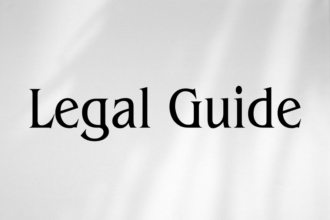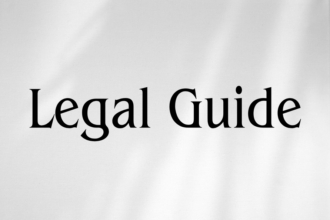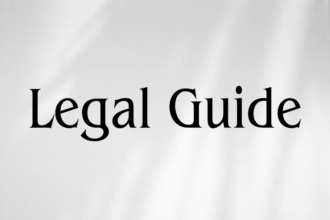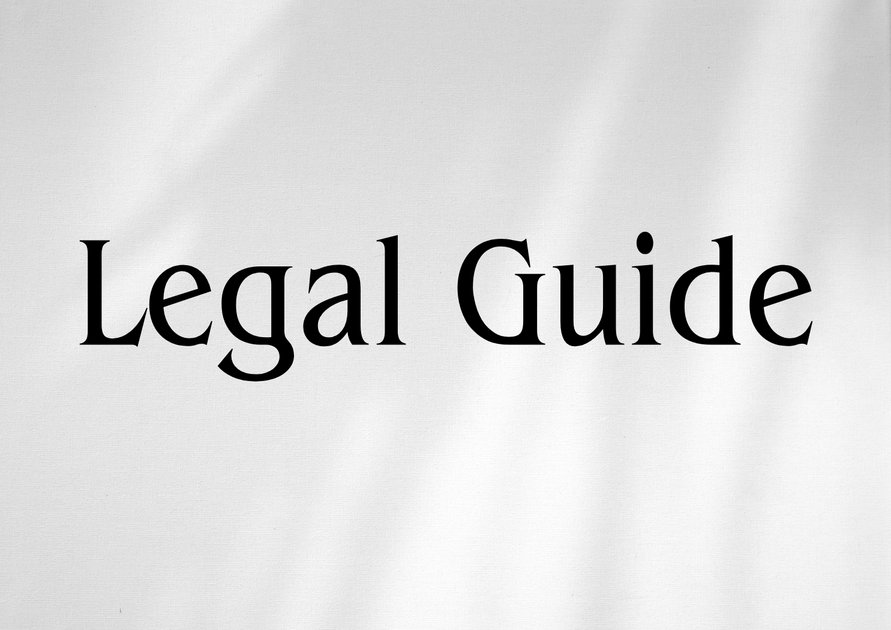Introduction
Mergers and acquisitions (M&A) play an increasingly vital role in business growth and market expansion in the United Arab Emirates (UAE). Over the past decade, the UAE has emerged as a global hub for strategic investments, attracting both regional and international players. As business landscapes evolve and regulations become more complex, robust due diligence has transformed from a simple checkbox exercise into a critical risk management tool that underpins deal success in a dynamic legal environment.
This article delivers a comprehensive consultancy perspective on due diligence in UAE M&A transactions, highlighting recent legal updates shaped by new legislation, including the Federal Decree-Law No. 32 of 2021 (UAE Companies Law), as well as cabinet and regulatory guidelines. With increasing scrutiny from regulators, heightened compliance expectations, and a trend towards tighter enforcement—including severe penalties for non-compliance—understanding best practice due diligence is now imperative for acquirers, sellers, private equity investors, and advisors.
The analysis below moves beyond generic definitions, offering actionable legal insights and a detailed checklist tailored to the UAE’s evolving legal framework. It draws on official resources from the UAE Ministry of Justice, Ministry of Economy, and the Federal Legal Gazette. Whether you are an executive planning your next acquisition or a legal counsel tasked with safeguarding your client’s interests, this resource equips you to navigate the complexities with confidence.
Table of Contents
- UAE Legal Framework Shaping M&A Due Diligence
- Key Due Diligence Areas in UAE M&A
- Comprehensive Legal Checklist for UAE M&A
- Comparing Old and New UAE Laws Pertaining to M&A
- Case Studies and Hypotheticals
- Risks of Non-Compliance and Compliance Strategies
- Conclusion and Best Practices: Staying Ahead
UAE Legal Framework Shaping M&A Due Diligence
1. Overview of Key Legislation
Due diligence in the UAE is governed by a constellation of legislative and regulatory instruments, each impacting specific risk areas. The current legal landscape is anchored by:
- Federal Decree-Law No. 32 of 2021 (UAE Companies Law) – Overhauled company establishment, disclosure, and reporting requirements.
- Federal Decree-Law No. 26 of 2020 – Amended key articles relating to foreign ownership and corporate governance.
- Cabinet Decision No. 58 of 2020 – Mandates Ultimate Beneficial Ownership (UBO) registers.
- Federal Decree-Law No. 20 of 2018 (Anti-Money Laundering) and subsequent Cabinet Resolutions – Define AML/CTF obligations for entities, checks for politically exposed persons (PEPs), and financial recordkeeping.
- UAE Competition Law (Federal Decree-Law No. 4 of 2012) – Regulates concentrations in certain sectors.
- Sectoral laws – Including the law on Commercial Agencies, Foreign Direct Investment, Labour Law (Federal Decree-Law No. 33 of 2021), and sector-specific regulatory requirements (e.g., insurance, banking, healthcare).
For transactions involving free zones, each has its own framework, such as the Dubai Multi Commodities Centre (DMCC) or Abu Dhabi Global Market (ADGM), that may impose additional rules on mergers, restructuring, and share transfers.
2. Regulatory Updates and Enforcement Trends
Recent government communications, particularly from the Ministry of Economy and Ministry of Justice, have reinforced the following priorities:
- Transparency – Enhanced UBO and affiliate transaction reporting.
- Foreign participation – Liberalization of foreign ownership, subject to ongoing notification and approval processes in strategic sectors.
- Sanctions and AML/CTF enforcement – Stepped-up inspections, steep fines, and, in grave cases, suspension of licenses or criminal prosecution.
- Protection for stakeholders – New rules for creditor and employee rights in business transfers.
Key Due Diligence Areas in UAE M&A
1. Corporate and Legal Structure
Confirm the legal status, shareholding, and governing documents of the target. Review:
- Trade license(s), Memorandum and Articles of Association
- Shareholder and manager registers
- Board and shareholder resolutions (especially recent amendments or restructures)
- Ultimate Beneficial Owner (UBO) documentation (in line with Cabinet Decision No. 58 of 2020)
- Documentation for branches, subsidiaries, joint ventures, and group entities
Practical Insight: Given the increased regulatory focus, all submitted records must reconcile accurately with the Department of Economic Development (DED) and ministry filings. Inconsistencies in UBO data now trigger audits or administrative fines.
2. Foreign Ownership and Local Participation
It is essential to check whether the target company’s current and historic ownership structures fully comply with the Foreign Direct Investment Law and any related negative/positive lists. Non-compliance may jeopardize validity of key commercial licenses or trigger retroactive penalties.
Example: A manufacturer established prior to the 2020 liberalization may require remedial steps if effective control mechanisms (e.g., side agreements) breach permitted thresholds under updated law.
3. Contractual Obligations
A core due diligence component is scrutinizing all material agreements:
- Major supply and customer contracts
- Commercial agencies (especially given Federal Commercial Agencies Law No. 3 of 2022 and exclusivity/termination limits)
- Leases and property agreements
- Joint ventures and shareholders’ agreements
- Financing and security arrangements
Contract analysis should identify change of control clauses, assignment restrictions, and any termination-for-cause triggers.
4. Licenses, Regulatory, and Sectoral Approvals
Verifying valid commercial and sector-specific regulatory licenses is essential. Where mergers may impact sensitive sectors—such as banking, insurance, healthcare, or real estate—prior regulatory approvals must be identified and proactively sought.
5. Employment and Workforce Matters
- Compliance with Federal Decree-Law No. 33 of 2021 (UAE Labour Law) on employment terms, end-of-service benefits, and employee transfer protocols.
- Verification of visa status, Emiratisation compliance, and occupational health & safety records.
- Existence of any long-term incentive plans, collective redundancies, or retention schemes.
Practical Tip: Employee transfer on asset sales typically requires new contracts and employee consent. Absence of proper documentation invites wrongful termination claims and penalties.
6. Litigation and Dispute Status
Detailed investigation into ongoing, threatened, or historic lawsuits, arbitration claims, and regulatory investigations—both in the UAE and abroad—ensures the buyer does not inherit undisclosed liabilities.
7. Compliance, Sanctions, and Anti-Money Laundering
As per Federal Decree-Law No. 20 of 2018 and Cabinet Decision No. 10 of 2019, every target entity must comply with increasingly stringent AML/CTF obligations, including Know Your Customer (KYC), reporting of suspicious transactions, and maintaining records for up to five years post-completion.
8. Intellectual Property and Data Privacy
- Validity of trademarks, patents, copyrights, domain registrations
- Data protection compliance, with new obligations under the UAE Federal Law No. 45 of 2021 (Personal Data Protection Law)
Visual Suggestion: Place a compliance checklist visual summarizing the above core due diligence domains.
Comprehensive Legal Checklist for UAE M&A
The following checklist, refined through current legislative standards and best practices, underpins any successful M&A due diligence in the UAE:
| Main Area | Key Actions | Legal Reference | Risk if Missed |
|---|---|---|---|
| Corporate Records | Collect, reconcile all foundational documents; verify UBO | Companies Law 32/2021; Cabinet Decision 58/2020 | Licensing issues; regulatory fines |
| Ownership & Control | Assess FDI eligibility; review historic side arrangements | Decree-Law 26/2020 | Void transactions; forced unwinding |
| Material Contracts | Identify change of control, exclusivity, termination clauses | Commercial Agencies Law 3/2022 | Inadvertent breaches; litigation risk |
| Licensing & Regulatory | Verify DED, sector and free zone licenses; note expiry & renewals | Sectoral regulations | Suspension of business; fines |
| Employment | Review contracts, visas, benefit accruals, transfer consents | Labour Law 33/2021 | Employment disputes; penalties |
| Litigation | Investigate disputes, regulatory actions, settlement history | Ministry of Justice records | Hidden liabilities |
| Compliance & AML | KYC checks, PEP screening, recordkeeping | AML Law 20/2018 | Heavy penalties, criminal risk |
| Ip & Data | Title, registrations, data privacy assessments | IP Law, Federal Law 45/2021 | IP loss; data breach fines |
Comparing Old and New UAE Laws Pertaining to M&A
Recent reforms have had a transformative effect on due diligence scope and execution. A comparative snapshot:
| Due Diligence Area | Pre-2020 Position | Post-2020/Current Law |
|---|---|---|
| Foreign Ownership | Maximum 49% foreign shareholding in onshore LLCs | 100% permitted in many sectors, subject to sectoral restrictions |
| UBO Disclosure | No formal UBO register required | UBO register mandatory; Cabinet Decision 58/2020 |
| Employee Rights on Business Transfer | Minimum regulatory protections; ad hoc transfer | Clear procedures under Labour Law 33/2021 |
| AML Obligations | Narrower KYC requirements, modest enforcement | Expanded AML/CTF checks, strict enforcement, self-regulation duties |
| Data Privacy | No unified privacy law; sectoral approach | Personal Data Protection Law 45/2021 harmonizes requirements |
Case Studies and Hypotheticals
Case Study 1: Navigating UBO Pitfalls
Scenario: An international group intends to acquire a UAE mainland engineering firm. Due diligence reveals reliance on a local nominee shareholder agreement dating to 2016, contravening Cabinet Decision No. 58/2020’s UBO disclosure requirements.
Impact: Without addressing the outdated arrangement, the transaction risks regulatory challenge and possible nullification. Remediation requires restructuring share registers and making the appropriate UBO disclosures.
Case Study 2: Labour Law Compliance in a Service Company Transfer
Scenario: A UAE-based logistics operator is being acquired via an asset deal. Legacy employees lack up-to-date written employment contracts compliant with Federal Decree-Law No. 33 of 2021.
Result: Post-completion, a number of staff assert wrongful termination claims, seeking enhanced severance. A costly and avoidable dispute ensues. Legal counsel’s recommendation: update all contracts, obtain written employee transfer consents, and ensure proper notification to MOHRE (Ministry of Human Resources and Emiratisation).
Hypothetical: Penalty Risk for AML Non-Compliance in a Financial Services Target
A financial services company acquired without thorough AML/CTF compliance review faces a post-acquisition investigation. Discovery of unreported transactions exposes the buyer to potential administrative fines of AED 1 million+ per breach (as per Federal Decree-Law No. 20 of 2018), negative media attention, and possible criminal sanctions.
Risks of Non-Compliance and Compliance Strategies
Principal Risks of Inadequate Due Diligence
- Transaction nullification by UAE authorities if legal requirements are breached
- Litigation and regulatory fines (ranging from AED 50,000 for minor offenses up to millions for AML violations)
- Civil and potential criminal liability for directors and management
- Loss of business reputation and operational disruption
- Scrutiny from sectoral regulators (insurance, banking, etc.)
| Offense | Relevant Law | Potential Penalty |
|---|---|---|
| Non-disclosure of UBO | Cabinet Decision 58/2020 | AED 50,000 – AED 100,000 |
| AML/CTF Breach | Decree-Law 20/2018 | Up to AED 50 million and/or criminal liability |
| Unauthorized foreign ownership | Companies Law 32/2021, FDI Law | Nullification, business license revocation |
| Employee transfer non-compliance | Labour Law 33/2021 | Compensation, re-employment orders |
Successful Compliance Strategies for UAE M&A
- Early Engagement: Involve experienced legal counsel and compliance advisors from the outset to map out regulatory and sectoral requirements.
- Regulatory Interface: Proactively engage with the DED, Ministry of Economy, and sector regulators for pre-clearance where ambiguity exists.
- Comprehensive Documentation: Maintain centralized, up-to-date records, traceable to filings with government authorities.
- Employee Communication: Prepare for timely employee consultation, ensuring lawful transfer and mitigating morale issues.
- AML/KYC Protocols: Undertake robust third-party background checks, especially for high-risk/PEP clients.
- Customized Transaction Structuring: Adapt deal structure (asset v. share deal, local v. free zone ratios) to sector-specific legal restrictions and approval requirements.
Visual Suggestion: Insert a flow diagram of the transactional due diligence process—Initial Review, Regulatory Notifications, Employee & Contract Review, Compliance Audit, Deal Execution.
Conclusion and Best Practices: Staying Ahead
As the UAE’s legal and regulatory environment continues to modernize in line with global best practice, the bar for due diligence in M&A has been permanently raised. Recent federal decrees, Cabinet Decisions, and ministerial guidance have introduced enhanced transparency, broader sectoral controls, and heavier sanctions for non-compliance, especially in relation to UBO obligations, AML/CTF, and stakeholder protection. Businesses and advisors can no longer rely on informal agreements or incomplete documentation to close deals. The cost of overlooking effective due diligence—financial, reputational, and legal—can be catastrophic.
To remain competitive, parties must:
- Monitor all legal updates, especially those relating to company law, financial crime prevention, and labour law reforms
- Adopt a proactive, checklist-driven approach to all areas of due diligence—from contract reviews to regulatory filings to employee communications
- Engage experienced legal counsel capable of implementing best practice methodologies and anticipating regulator concerns
- Regularly train internal teams on emerging compliance obligations and trends in UAE enforcement
In conclusion, mastering due diligence is not only a matter of legal compliance but also a driver of successful, value-adding M&A transactions in the UAE. By applying the strategies and checklists above, companies can minimize risk, secure regulatory approval, and achieve optimal deal outcomes in a rapidly evolving environment.
For more detailed guidance, or to discuss specific M&A scenarios in the UAE, consult with our expert legal team, who are equipped to advise on the latest legislative updates and best practice compliance protocols.




